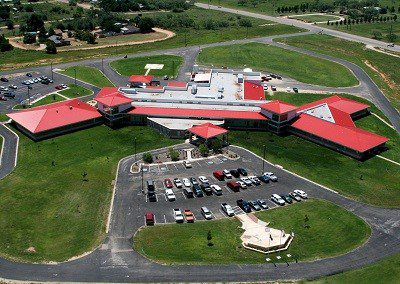Orchard is pleased to share that our long-term customer, Mitchell County Hospital District (MCHD), received recognition for the sixth year in a row as a Top 100 Critical Access Hospital.
“Mitchell County Hospital is proud to be recognized as one of the Top 100 Critical Access Hospitals in the Nation for five of the last six years. This achievement reflects the dedication, professionalism, and compassion of our staff, as well as the trust and support this community has in our ability to provide the highest level of care.”
— Robbie Dewberry, CEO
Mitchell County Hospital District—Achieving its Goals
MCHD is a 25-bed critical access hospital that holds a Level IV Trauma Designation. The hospital also owns Mitchell County Emergency Medical Service and Family Medical Associates, a rural health clinic. Their mission is to provide “the right thing every time for every patient.”
The Top 100 List—An Unbiased Comprehensive Evaluation
The Top 100 list is determined by The Chartis Group using the Hospital Strength INDEX®, and is the industry’s most comprehensive and objective assessment of rural hospital performance. Eight performance pillars are assessed across Market, Value, and Finance, including an in-depth review of market share, quality, patient outcomes and satisfaction, as well as financial stability.
Robbie Dewberry, CEO, credits the history of attaining this award to a dedicated staff. “This is a recognition that you do not apply for. Our overall score of 95.6 (with a 99% for Quality), is a true testament to our staff’s dedication and accountability.”
Rural Hospitals Strain Under Immense Pressure from COVID-19
With the tremendous pressure that the Coronavirus pandemic has placed on our healthcare system and on the rural hospitals, achieving this award in 2021 holds a high significance.
Approximately 60 million people depend on their local rural hospitals for care. Yet, the COVID-19 virus has taken a toll on the rural hospital community with 135 closures since 2010 and another 453 vulnerable to closure.1 At MCHD, they initially saw a drop in utilization of 50-60%; however, through effective strategic planning and support from the Coronavirus Aid, Relief, and Economic Security (CARES) Act funds, the hospital is making a quick recovery.
MCHD Laboratory Steps up its COVID-19 Response
The MCHD laboratory, using Orchard products since 2005, acted quickly on the COVID-19 front, initially contracting with referral laboratories for testing, then moving testing in-house with a 72-96-hour turnaround time. At their COVID-19 peak, the laboratory was testing 15-30 people each day.
Supportive leadership and the ability to pivot enabled their laboratory to quickly gain the equipment needed for COVID-19 testing. Dewberry explains that they were able to alleviate PPE shortages with assistance from the State of Texas Assistance Request (STAR) program that allows hospitals to request resources during an emergency along with assistance from Texas Organization of Rural Community Hospital’s, Texas Hospital Association and State Office of Rural Health.
Rural Hospitals Face More Challenges as the Healthcare Market Shifts
With declining COVID-19 cases, Dewberry shares that it is important to communicate to patients that it is safe to come back to the facility so patients can get the care they need. With mask-wearing and ramped-up hand hygiene, emergency, nonemergent, and preventive care is available and safe to access.
“Our hospital is a Critical Access hospital and like most rural hospitals, it faces unique challenges to survive and remain viable to meet our community’s needs. We are continually working to keep our hospital up-to-date to meet those challenges.”
— Robbie Dewberry, CEO
Looking forward, MCHD is strategically preparing for the future, maintaining the flexibility needed to adapt to the changes in healthcare. With an overall industry shift to managed care contracts and more outpatient care, the hospital is looking toward telehealth initiatives and other programs to boost its outpatient services, while maintaining the quality of care for which it was recognized. Telehealth is being acknowledged as an effective tool to expand access and improve the quality of rural healthcare. Telehealth in rural areas can address certain patient challenges, such as transportation issues, and can help improve timeliness and communications within healthcare systems.2 In response to the pandemic, barriers to reimbursement and other restrictions are being lifted for telemedicine.
Flexibility and planning for the future has helped MCHD survive and thrive during trying times. Orchard would like to thank MCHD for its dedication to quality patient care and to help recognize their achievement during a nationwide pandemic—a historically challenging time within our healthcare system. By maintaining its core mission of quality care, yet being open to new technologies, MCHD is set to continue to be a leader among rural critical access hospitals.
Notes
- Crises Collide—The COVID-19 Pandemic and the Stability of the Rural Health Safety Net. The Chartis Group. Feb. 2021. Accessed at: chartis.com/resources/files/Crises-Collide-Rural-Health-Safety-Net-Report-Feb-2021.pdf
- Telehealth Use in Rural Healthcare. Updated March 2019. Accessed at www.ruralhealthinfo.org/topics/telehealth.
